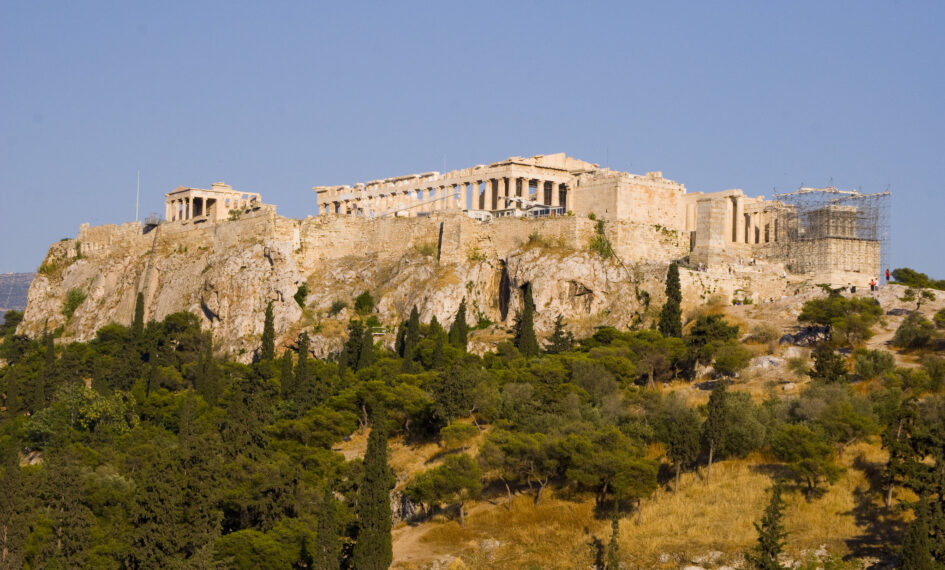The Acropolis, typically referring to the Acropolis of Athens, is a term with rich historical and etymological significance:
- Definition: The term “Acropolis” literally means “high city” in Greek. In ancient Greece, an acropolis was a settlement, especially a citadel, built upon an area of elevated ground—often a hill with steep sides, chosen for purposes of defence and visibility over the surrounding area. The most famous example is the Acropolis of Athens, which is home to several ancient buildings of great architectural and historic significance, the most famous being the Parthenon.
- Etymology: The word derives from the Greek words “akron” (meaning edge, extremity) and “polis” (meaning city). Thus, it directly translates to ‘edge city’ or ‘city on the edge/extremity,’ referring to its elevated position.
- Origin: The concept of an acropolis was integral in ancient Greek city-states, symbolizing both security and religious significance. The Athenian Acropolis, dating back to the 5th century BC, is the most iconic example and was a centre for ancient Athenian religious and civic life. It has become emblematic of Ancient Greek civilization and is recognized as a symbol of democracy and Greek art and architecture.



